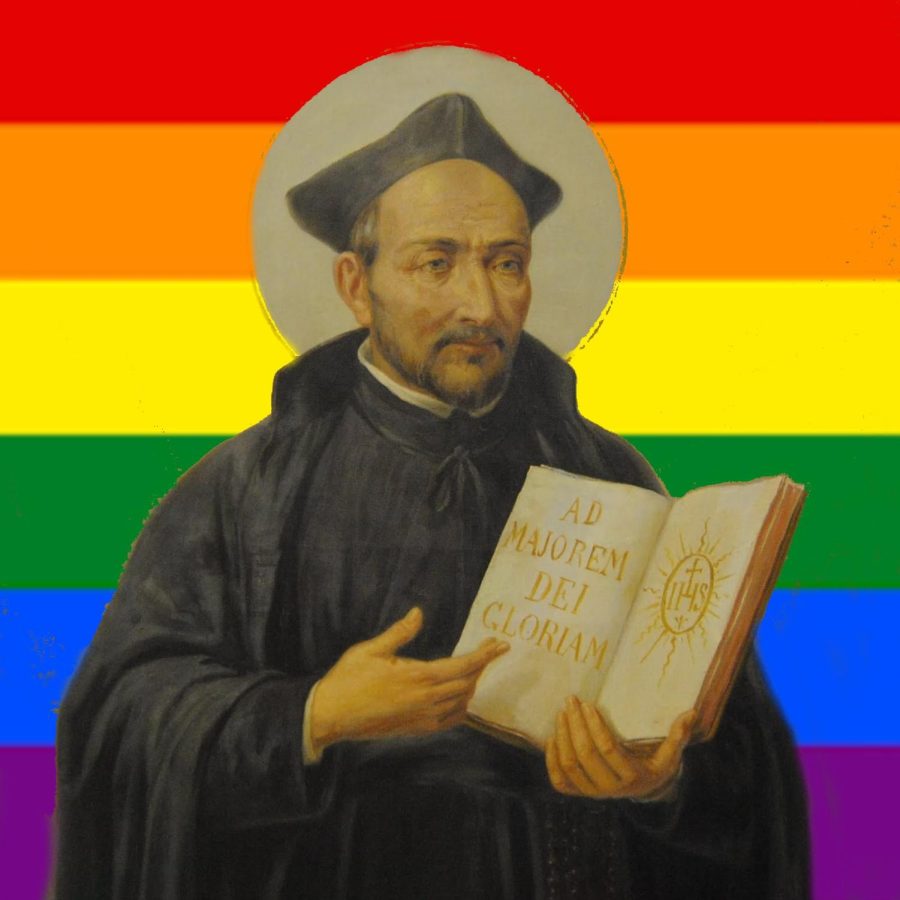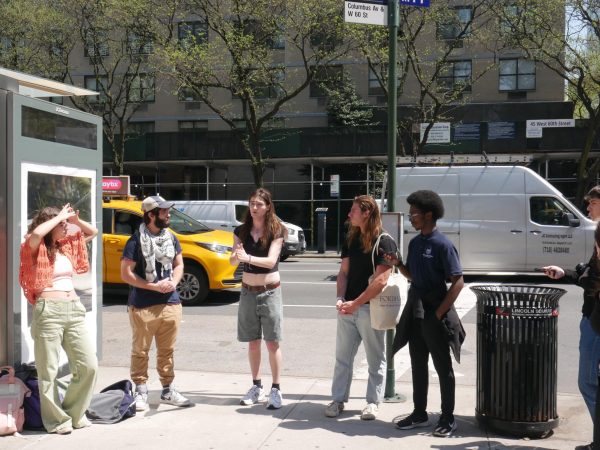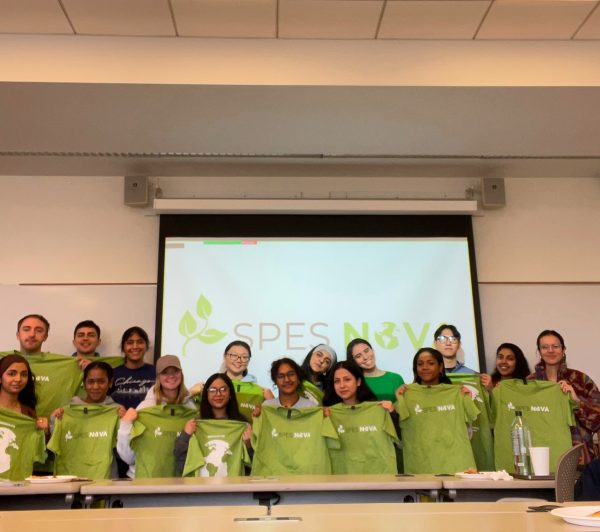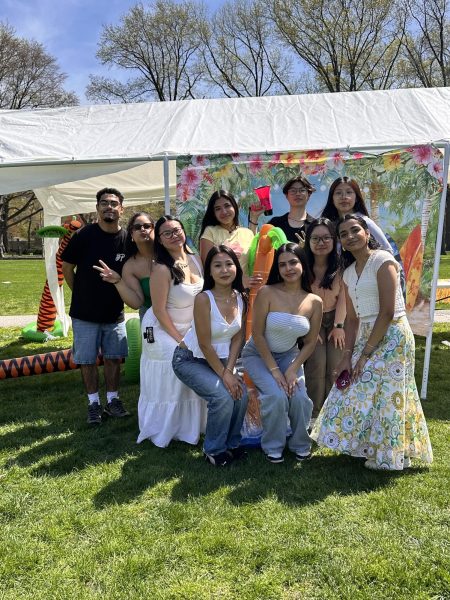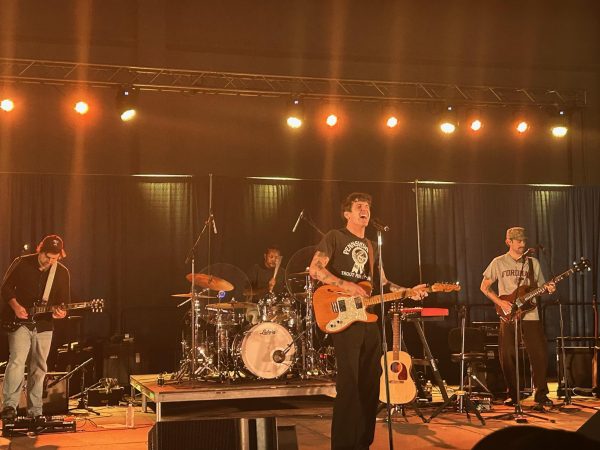Qu(e)ery Focuses on Experiences of LGBTQ+ Students
On Nov. 1, the Qu(e)ery survey was released to members of the Fordham community.
The survey aims to understand the experiences of LGBTQ+ undergraduate and graduate students on the Rose Hill, Lincoln Center and Westchester campuses.
The survey is spearheaded by four Fordham students,: Lilly Gieseke, FCRH ’23, Fareea Khan, FCRH ’24, Benedict Reilly, FCRH ’23 and Ethan Hammett, FCRH ’23. The group has been working on the Qu(e)ery since April 2022.
The survey is a part of Fordham’s Pride Alliance, specifically a sect called Pride Magis. Under Pride Magis, there are three different initiatives. The first is a prayer book created in collaboration with campus ministry that includes reflections, prayers and songs through a queer lens. The second initiative is Ignatian Q, a conference hosted at Fordham Lincoln Center in the spring that helps build a community for LGBTQ+ students in Jesuit schools. The last initiative is the Qu(e)ery.
The first Qu(e)ery at Fordham surveyed students in 2013. Jeff Lockhart, FCRH ’13, started the survey, looking into the LGBTQ+ student experience at Fordham. While the 2022 Qu(e)ery is based on Lockhart’s original survey, it aims to update the data to reflect the context of 2022.
“Now we are recreating the survey to just to check-in. But we have also altered some of the questions to be more applicable to today. We started by looking at [the original Qu(e)ery], we brought it into today and now we are just continuing to ask questions and keep this in context,” said Gieseke.
Gieseke said updating the original Qu(e)ery is important because the queer experience has changed since 2013.
“A lot has changed, believe it or not, since 2013 […] I believe things have gotten better, we’ll know after we do the survey. Especially with what is happening at Yeshiva University and [other] legislation that is happening, it’s important to know what is happening on a smaller scale within the university so that the administration can better support the gender and sexual minorities on campus.”
Reilly said that the survey is important because it can provide a “realistic” view of what queer life is like at Fordham. He said that the results can help the Fordham administration understand what ways they can use support queer students.
“We want to hear students’ insights on how Fordham can best help them so that we can, as the student body, better advocate for ourselves,” said Reilly.
The Qu(e)ery is open to all students and features questions regarding what queer students’ experiences have been like in class, talking to the administration, participating in extracurricular activities, interacting with other students, etc. According to Khan, the survey begins with questions about how queer students feel about the resources that the university provides to them and then goes into questions about student life.
“In this survey, we have an emphasis on intersectionality. We wanted to make sure to recognize the intersection between queer students and race, gender, religion, etc. The questions are pretty much evaluating all aspects of Fordham, like academic, social, [and more],” said Khan.
The Qu(e)ery collides in theme with a project Khan did a project for an anthropology class. They studied the intersection of religion and sexuality. For the project, they interviewed queer students and found there was a lack of knowledge about LGBTQ+ resources on campus, especially among First-Year and sophomore students.
“I think the survey would help other people know that resources are there and I think it would be good to gauge how many people know. Because just from interviewing a few people, it seemed like a lot of people didn’t know about resources,” said Khan.
The Ram spoke to the group on Oct. 31, a day before the survey was released. The group described sentiments of relief and excitement about its premiere.
“We’ve been working hard on it and we’ve shared it with a lot of people and we got pretty good feedback. It seemed like everyone was happy with it, we’re happy with it. So I’m excited to see what other people think of it,” said Khan.
According to the team, they will prepare a report on the survey’s general themes or patterns found in the data for the university administration. The survey results aim to better the experience of queer students at Fordham.
“[The Qu(e)ery] about giving a realistic understanding to perspective students, to current students and to alumni about what the queer experience is like on campus,” said Reilly.
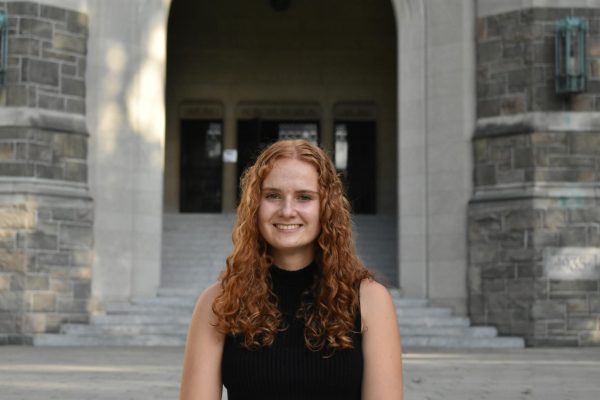
Isabel Danzis is a senior from Bethesda, Md. She is double majoring in journalism and digital technologies and emerging media. The Ram has been a very...



































































































































































































